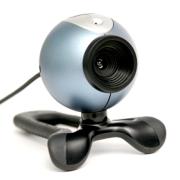Physics 3.0: Understanding the Foundational Concepts and Mathematics of the Next Physics Revolution
Date: 2009-10-03 Time: 07:00 - 09:00 US/Pacific (1 decade 5 years ago)
America/Los Angeles: 2009-10-03 07:00 (DST)
America/New York: 2009-10-03 10:00 (DST)
America/Sao Paulo: 2009-10-03 11:00
Europe/London: 2009-10-03 14:00
Asia/Colombo: 2009-10-03 19:30
Australia/Sydney: 2009-10-04 01:00 (DST)
Where: Online Video Conference
This video conference used DimDim, now a private company.
The meeting can be replayed by clicking this link:
watch the meeting recording
Description
Computer Science has been a distinct discipline for less than a century. As a relative newcomer to the scientific landscape, knowledge has predominantly flowed from historically established disciplines, like Mathematics and Physics, into Computer Science. During the past 50 years, Computer Science has undergone explosive growth in its Body of Knowledge. With an emphasis on Type, Function, and Namespace Abstraction, 2D and 3D Geometric Transformations, and Reverse Engineering, Computer Science provides unique techniques for analyzing physical and mathematical problems, derivations, and theories. Here we reexamine the validity of Einstein's 1905 Special Relativity Theory derivation, revealing several mistakes that are impossible to detect without the algorithmic reasoning tools and techniques uniquely found in the Computer Science Body of Knowledge. Support of these findings is obtained by showing that the corrected moving systems equations produce quantitatively better results than Einstein's original equations for the landmark Michelson-Morley and Ives-Stillwell experiments. As a result, the revised equations may provide a basis for new algorithms, with increased accuracy, for position and navigation systems. Correcting the accepted equations, and their interpretation, will require that specific Type, Function, and Namespace Abstraction knowledge found in the Computer Science discipline, as well as its refined understanding of Geometric Transformations, be migrated into the Mathematics and Physics Bodies of Knowledge.



